Chinese steamed fish with ginger and spring onion
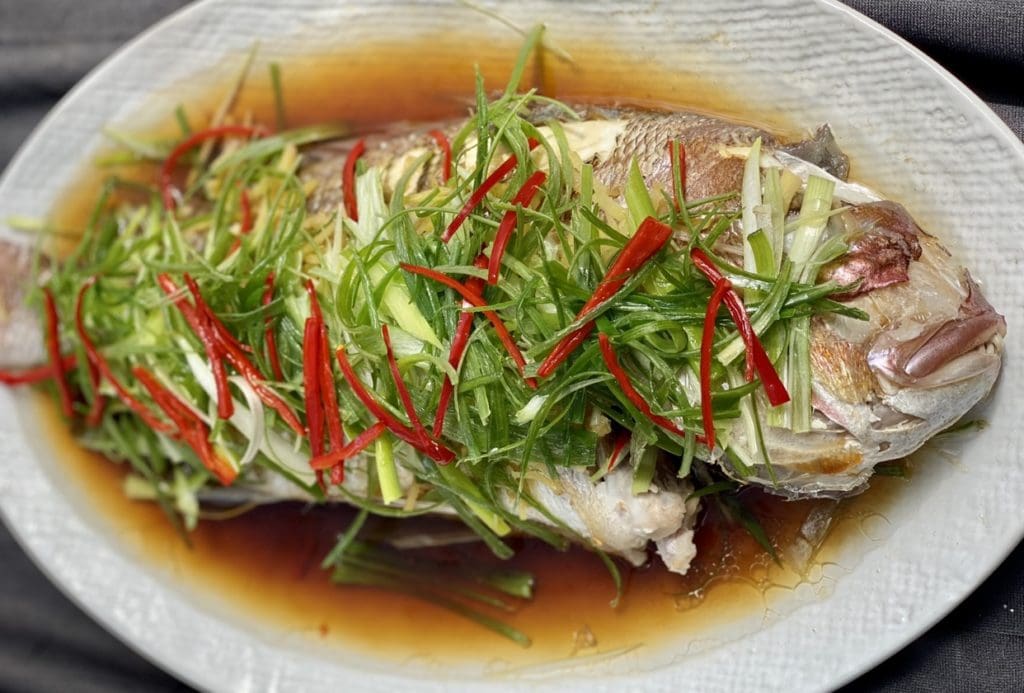
Recreate this Chinese inspired Chinese steamed fish with ginger and spring onions at home. It’s quick, simple and very delicious
Easy, healthy and delicious
I have fond memories of Chinese steamed fish with ginger and spring onions as a young child. My parents got invited to a Chinese wedding, and they took my sister, Nara and me along. We were probably only 5 and 7 years of age, but we remember this spectacular wedding like it was yesterday.
The wedding reception was huge, and approximately 400 guests turned up! As expected, my sister and I were in awe of the beautiful bride. We thought she was a real-life princess because she was so glamorous. Every half hour she changed into a different gown and it was dazzling! The gowns were large and puffy, fit for a Disney princess!
Then there was the food. Dish after dish came out, and the waiters served us like we were royalty. They expertly placed one arm folded behind their backs and served us with one hand. We practically didn’t need to lift a finger and if we did, it was only to eat!
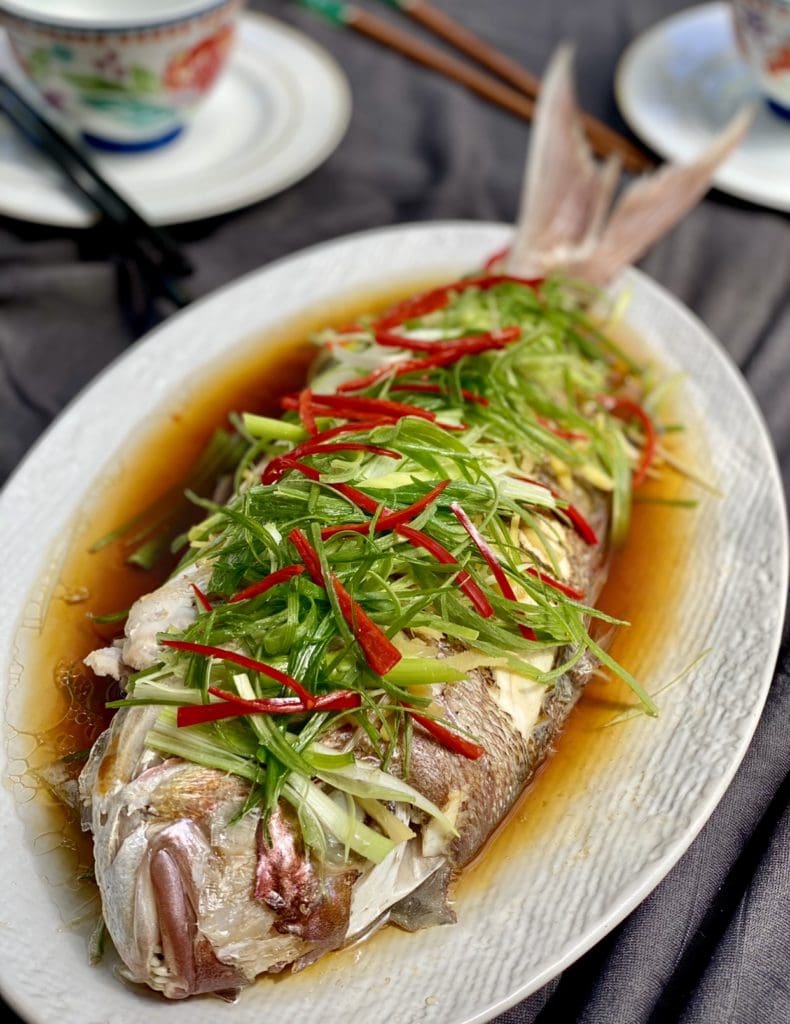
It was a seafood lover’s paradise. We had crab, abalone, lobster, prawns, and fresh steamed fish. Every Chinese dish was delightful and cooked to perfection. I wished my parents got invited to more Chinese weddings!
This inspired Chinese steamed fish tastes as good as the ones you get at Chinese restaurants. Whole steamed fresh fish that’s firm but tender, seasoned with soy sauce. It’s then topped with spring onions, chilli, and ginger. To make it aromatic, we pour over some very hot peanut oil, hearing it sizzle is so satisfying!
Fresher the fish, the better the taste
During uni, I worked at a fish market inside a mall nearby so I could afford to pay for my ridiculously expensive books and study materials. Let’s just say I got quite intimate with seafood because, after each shift, I smelt like fish for days.
Customers would ask me to hold up a whole fish and show them its eyes. I did not know why but later learnt that the clearer the eyes, the fresher the fish was. We sometimes had to hold up a whooping 6 kilo (8.8lb) slippery salmon for ages whilst customers were deciding if they wanted it or not. I had visions of the salmon slipping out of my hands and onto the floor. Thankfully, that never happened, as my boss was a very nasty fruit loop.
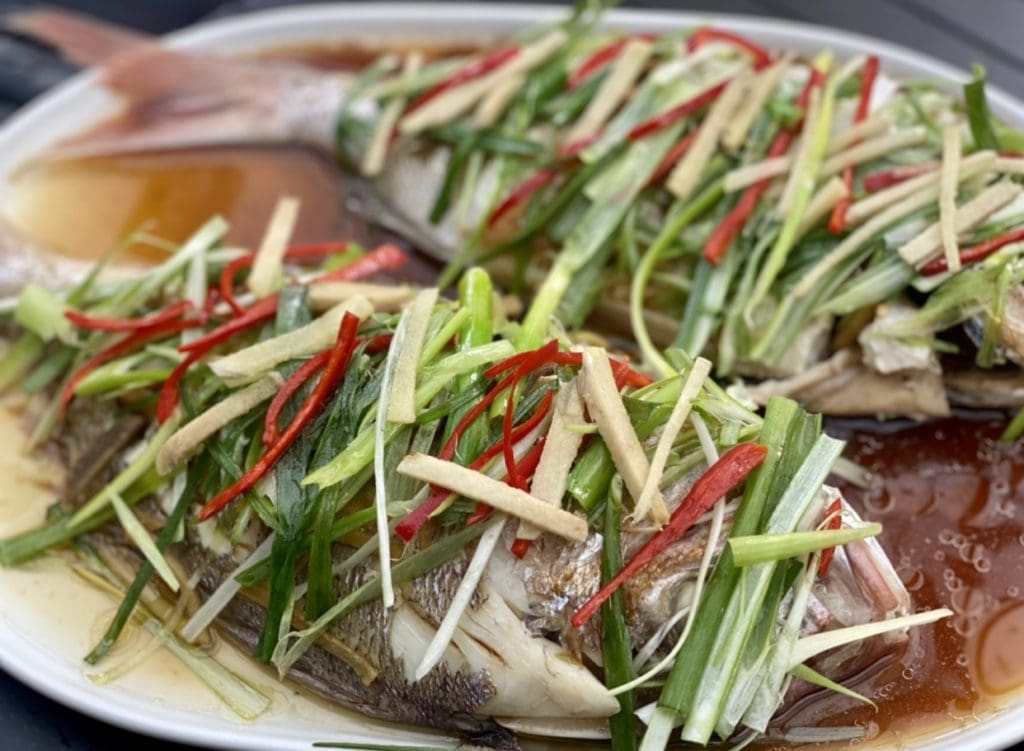
Being a fishmonger was probably one of the worst jobs I had, mainly because of the terrible owners, but like all jobs, I learned heaps from my time there. So, out of habit, before I buy a whole fish, I’ll gaze lovingly into its eyes before I hand over my money.
Fresh fish 100% tastes better and it doesn’t have a fishy smell. I feel cruel when I say this, but you can’t beat the taste of fish that just came out of a tank.
Years ago, we ordered fresh fish from a tank at a Chinese restaurant. We told the waiter we wanted a fish that weighed approximately 2 kilos. It shocked us when he brought the live fish to our dining table in a net and bucket for our approval. My sister and I could never forget how terrified the fish looked! It was gasping for air, or in this case, water. Since that day, we never ordered fresh fish again!
More tasty Chinese inspired recipes to try:
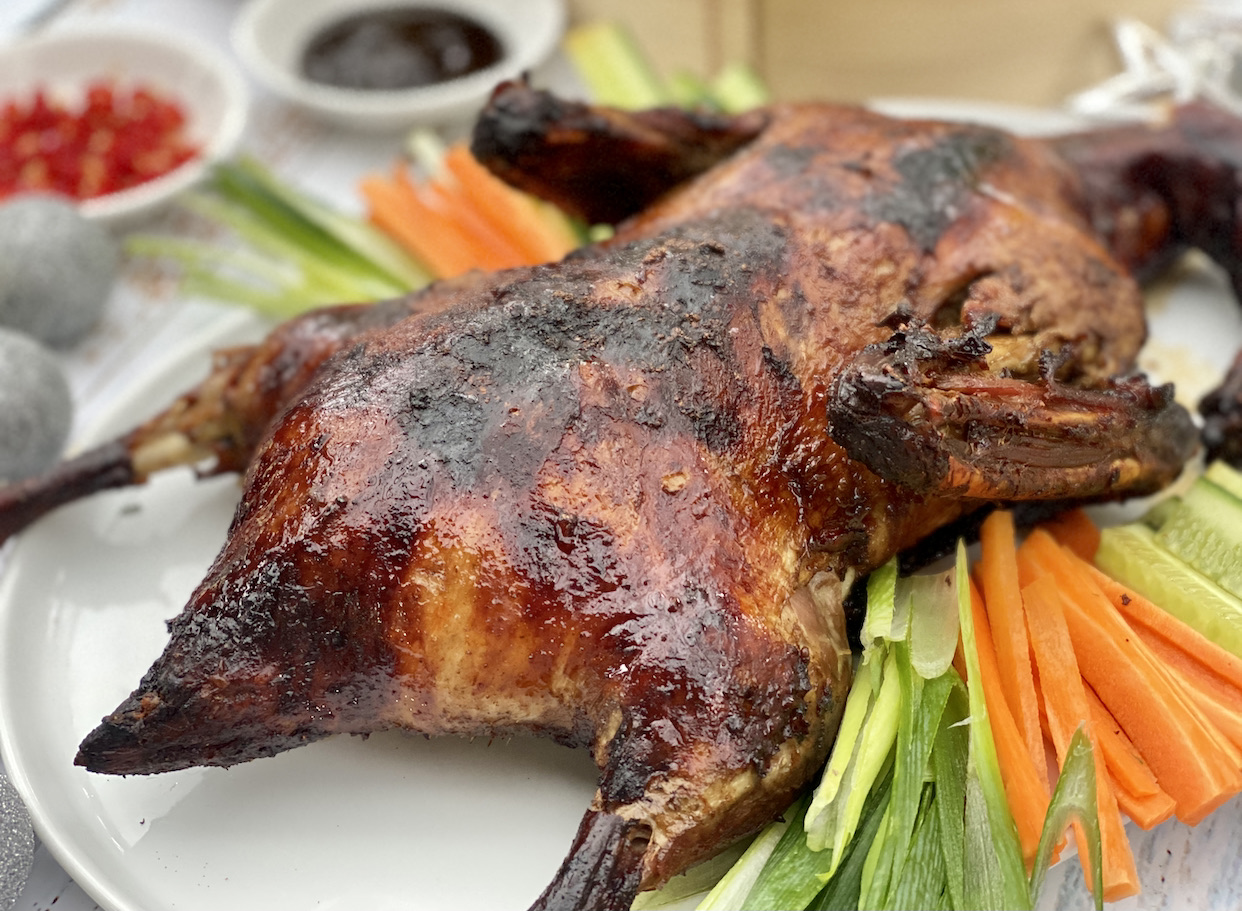
Chinese Roast Duck
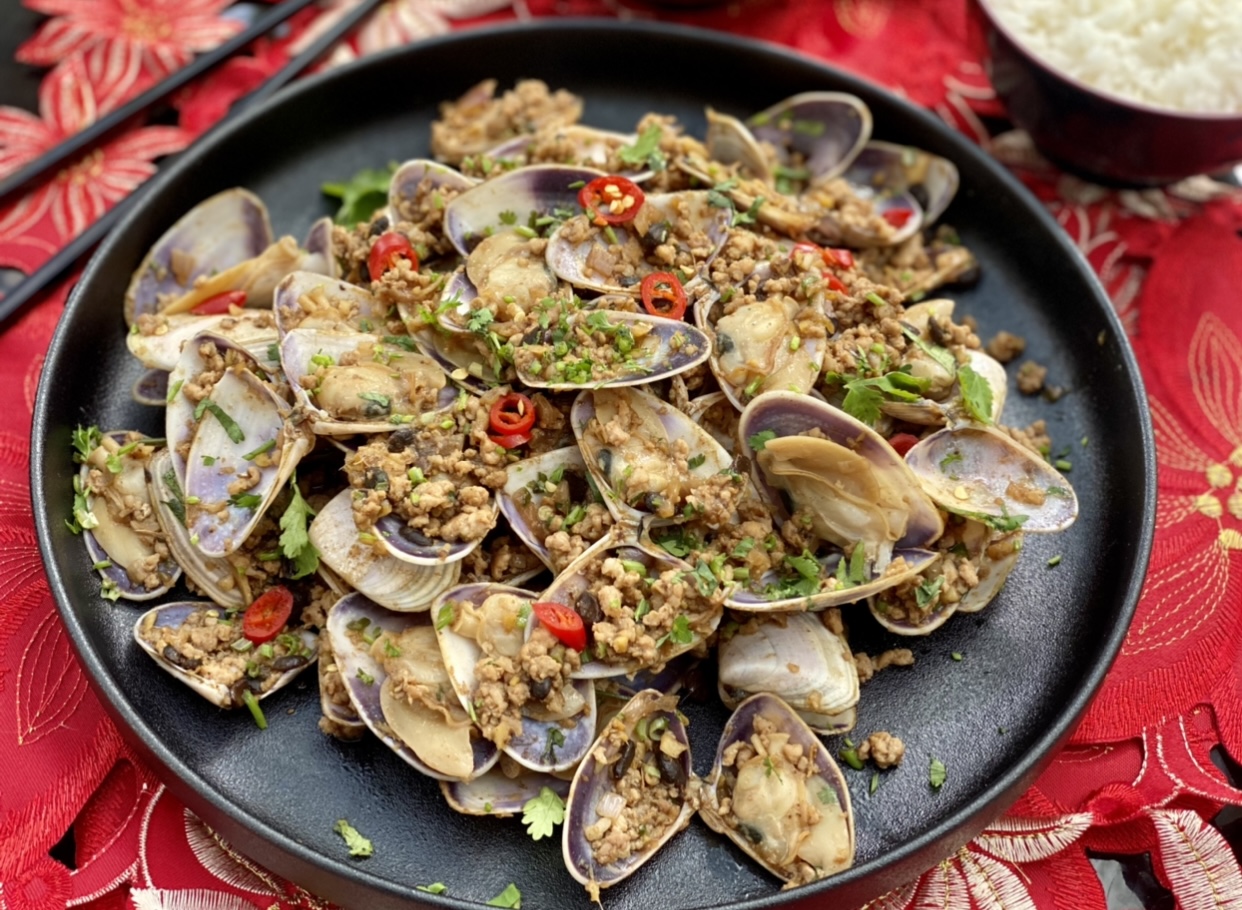
Pork & Clams Stir-fry
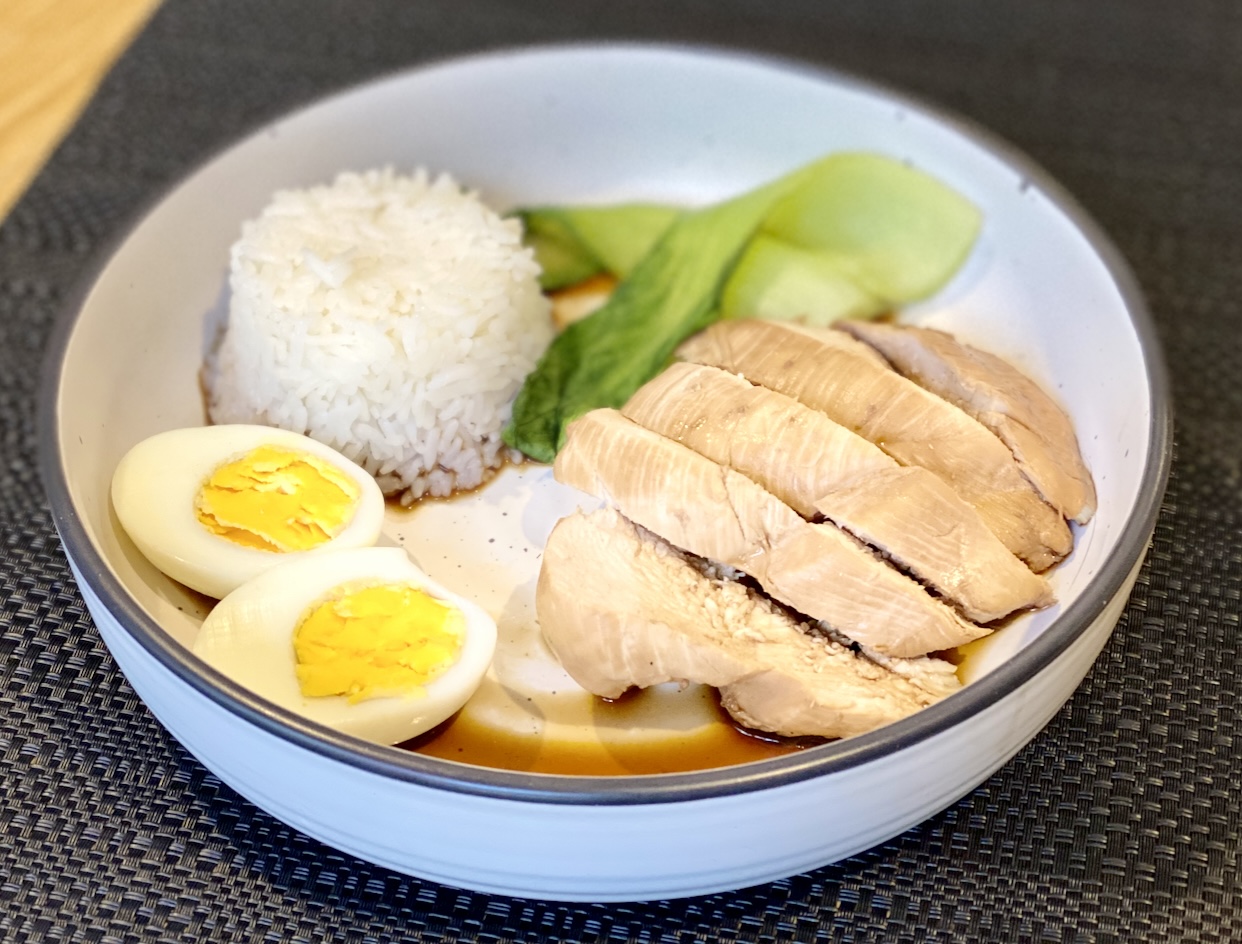
Soy Poached Chicken
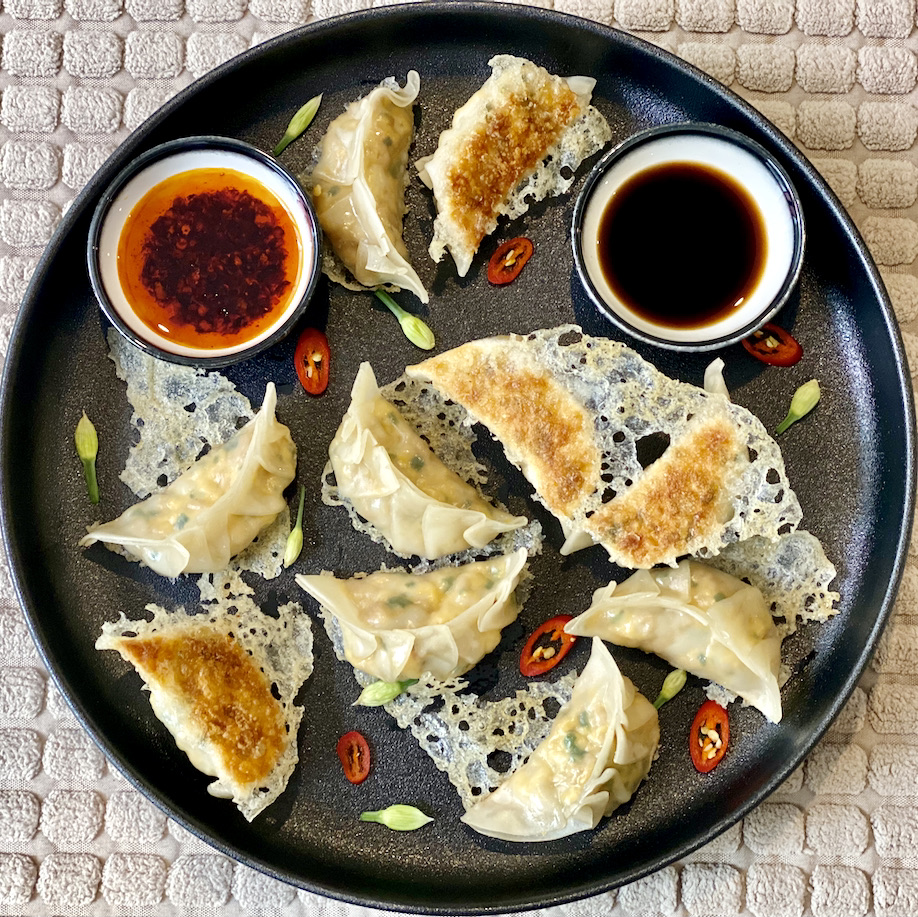
Pork Prawn Potstickers
Whole fish or fillets?
My parents would always purchase whole fish rather than fillets because it was way cheaper. I can still picture my mum sitting on a small wooden slate cleaning each fish. It was hard work, but she did everything herself, from gutting to scaling. I’m a passionate cook but you would never catch me doing that ever!
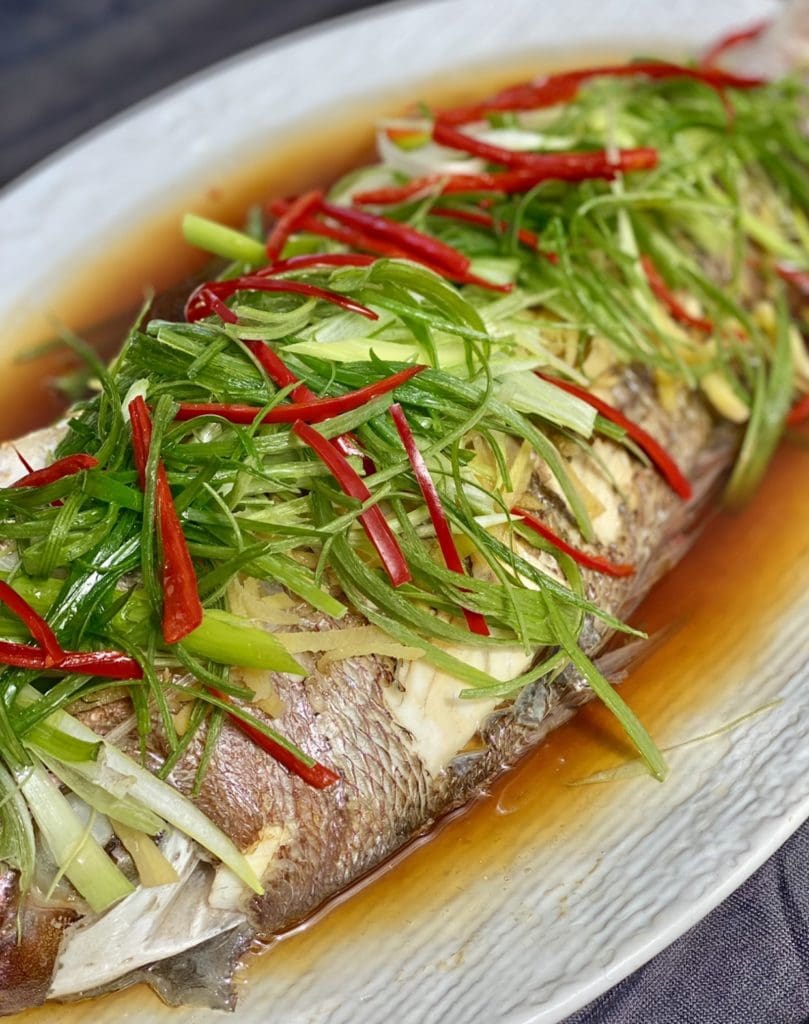
As careless hungry children, we weren’t careful with fish bones and they often got stuck in our throats. It was painful, just like we swallowed a needle or pin. Our resolution was to drink water or eat something else, hoping to flush the bone along with it. This must’ve worked because none of us ended up at the doctor’s office seeking help.
On special occasions or when I have guests over, I would sometimes purchase an entire fish to cook, but I usually stick with fillets as they are easier to work with. However, there’s just something undeniably special about plonking an entire fish on the table.
That’s unless you’re like my husband, Tomasi, who gets spooked out by looking at the fish’s head. When I showed him the photos I took for this post, he said ‘The photos are beautiful but you’re going to scare people with that ugly fish’s head!‘ Thanks to him, I can’t unsee that!
Ingredients for Chinese steamed fish
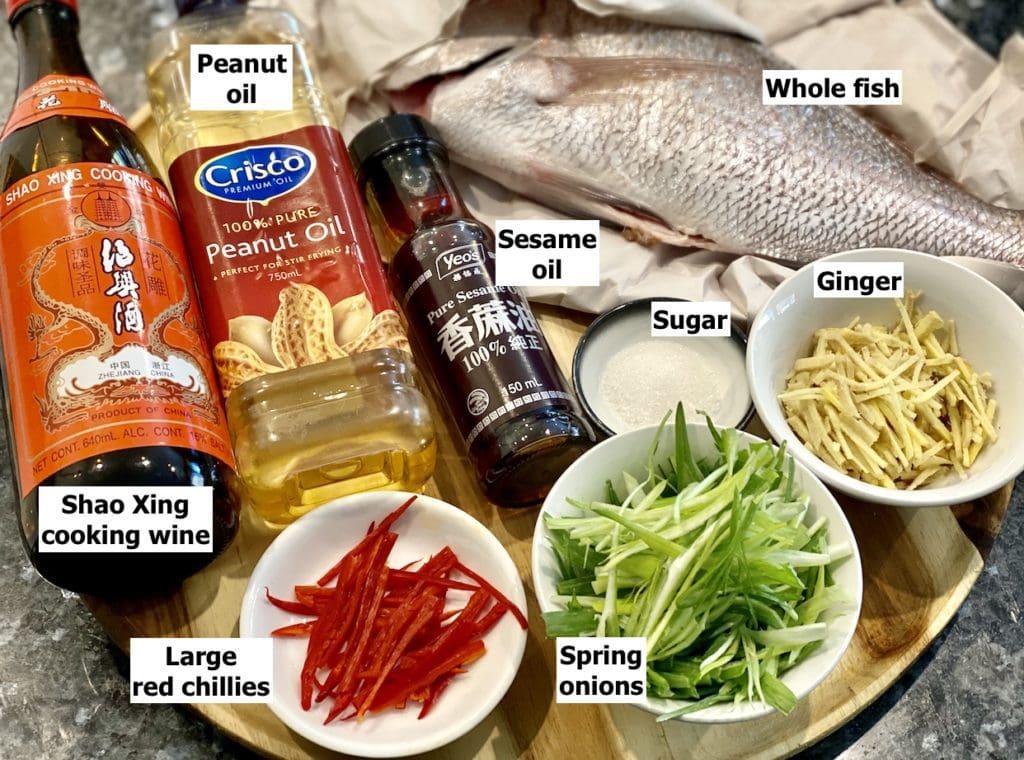
Whole fish – Use firm white fish such as snapper, bream, barramundi, or perch. Your fishmonger should be happy to gut, scale and clean the fish for you. If you have a large enough steamer, you could get an entire fish that weighs approximately 1kg (2.2lb). If not, purchase 2 fish weighing around 500gms each (1.1lb)
Shaoxing cooking wine is a Chinese cooking wine, sometimes known as Shao Xing or Shao Hsing. It comprises water, rice, wheat, salt and alcohol. Bottles of shaoxing wine are cheap to buy from Asian specialty stores and some supermarkets stock them too. Mirin or Dry sherry are good substitutes for Shaoxing cooking wine.
Light soy sauce or regular soy sauce but avoid the dark or sweet soy sauce varieties, as these are not interchangeable.
Sesame oil is very aromatic with a roasted nutty flavour and aroma. They usually stock sesame oil in the oil or international section of the supermarket.
Subscribe to 3CatsFoodie’s FREE Newsletter

For the latest recipes and other fun stuff!
How to make Chinese steamed fish
Step-by-step guide with photos
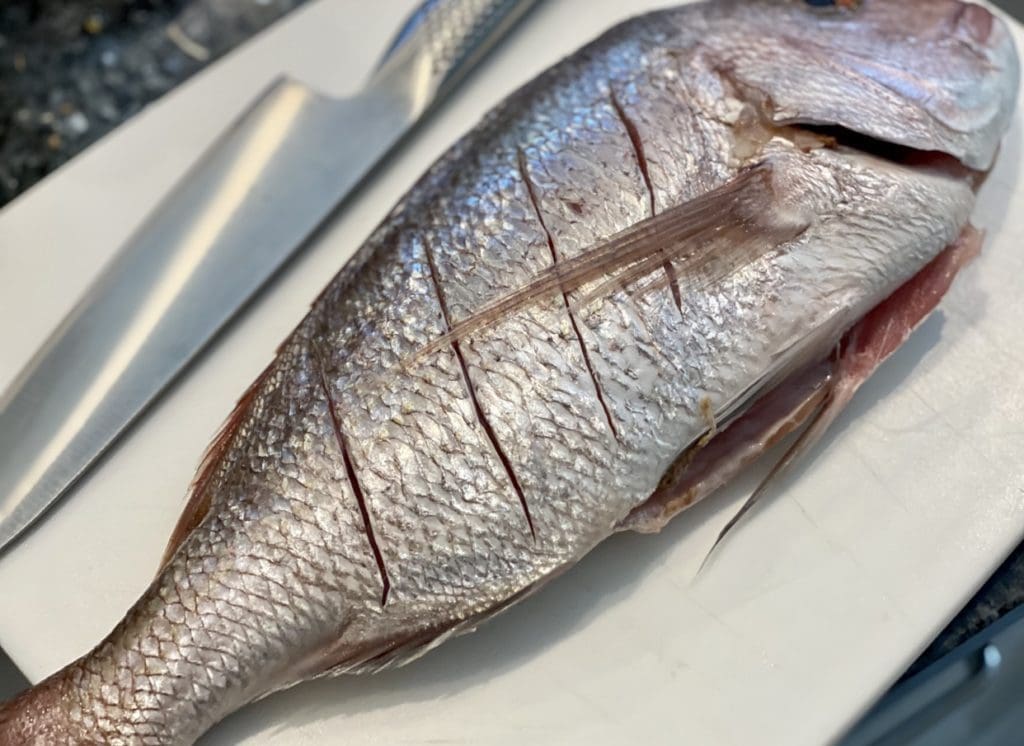
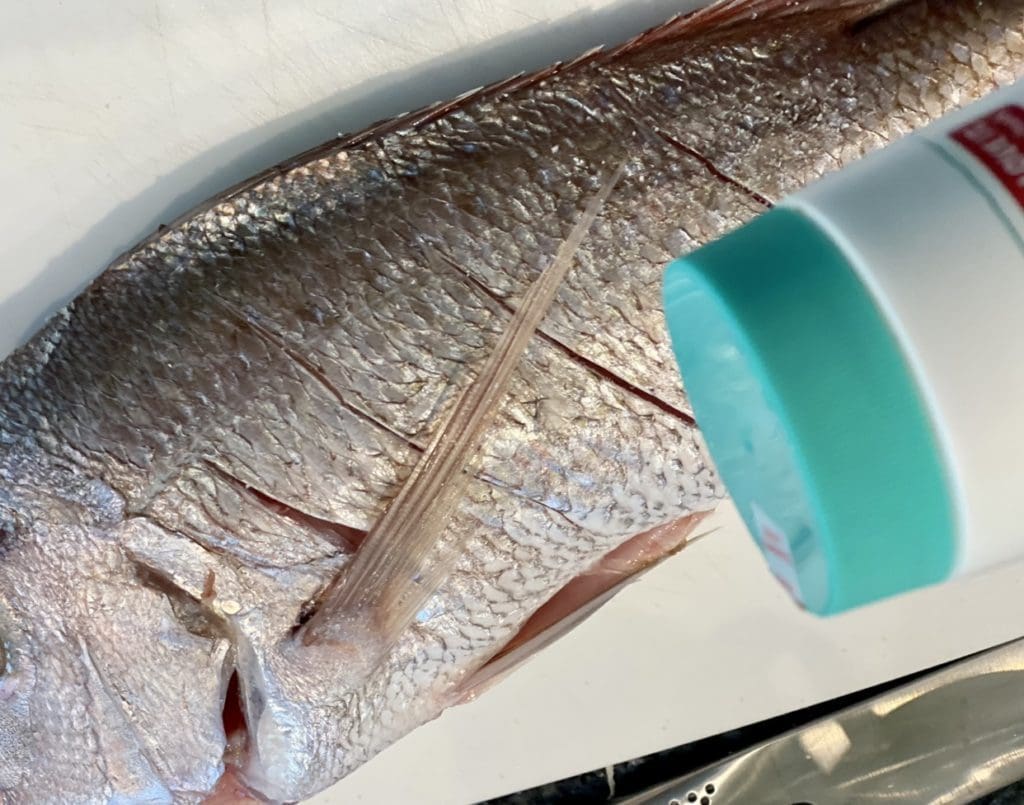
Pat the fish dry with paper towels. Use a sharp knife and slash the fish to the bone diagonally 3 to 4 times on both sides of the fish. Lightly sprinkle salt all over the fish.
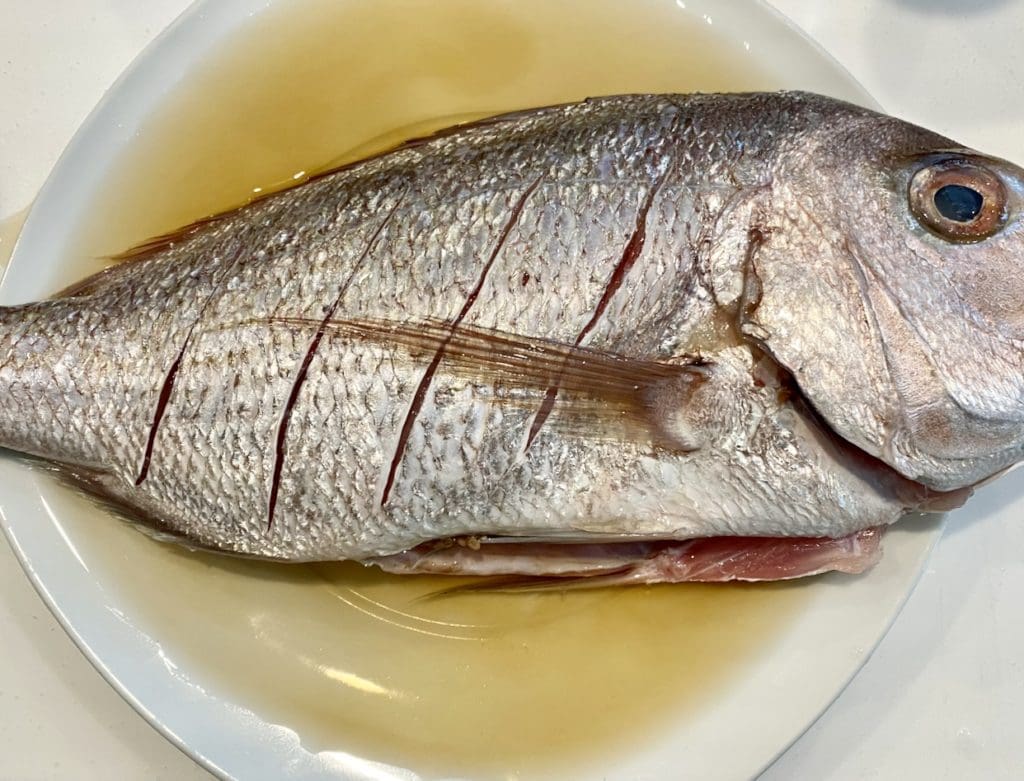
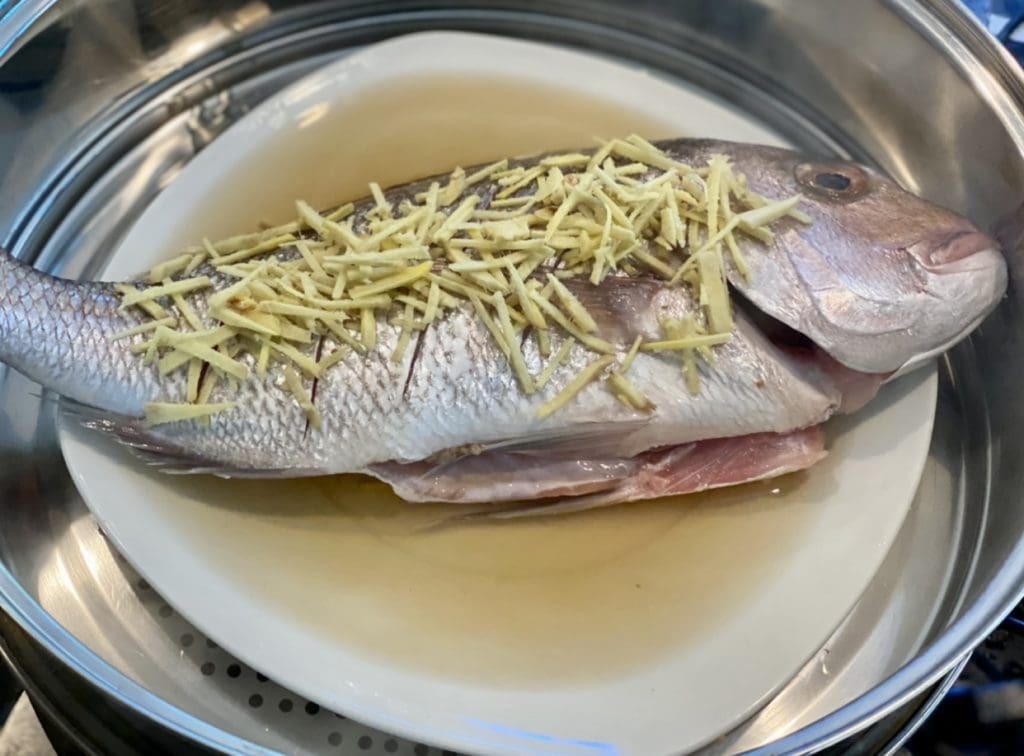
Fill in a large saucepan or wok (with a steamer attachment) with water approximately 1/3 full. Place the saucepan (without the steamer attachment) over high heat and bring the water to a rapid boil.
Place the fish on a plate large enough to hold the fish, but make sure that it will fit into your steamer. Transfer the plate and fish onto the steamer attachment and pour water and wine over the fish, then place half of the ginger on top. Attach the steamer onto the saucepan and cover. Steam for 8 to 10 minutes or until the flesh of the fish is white.
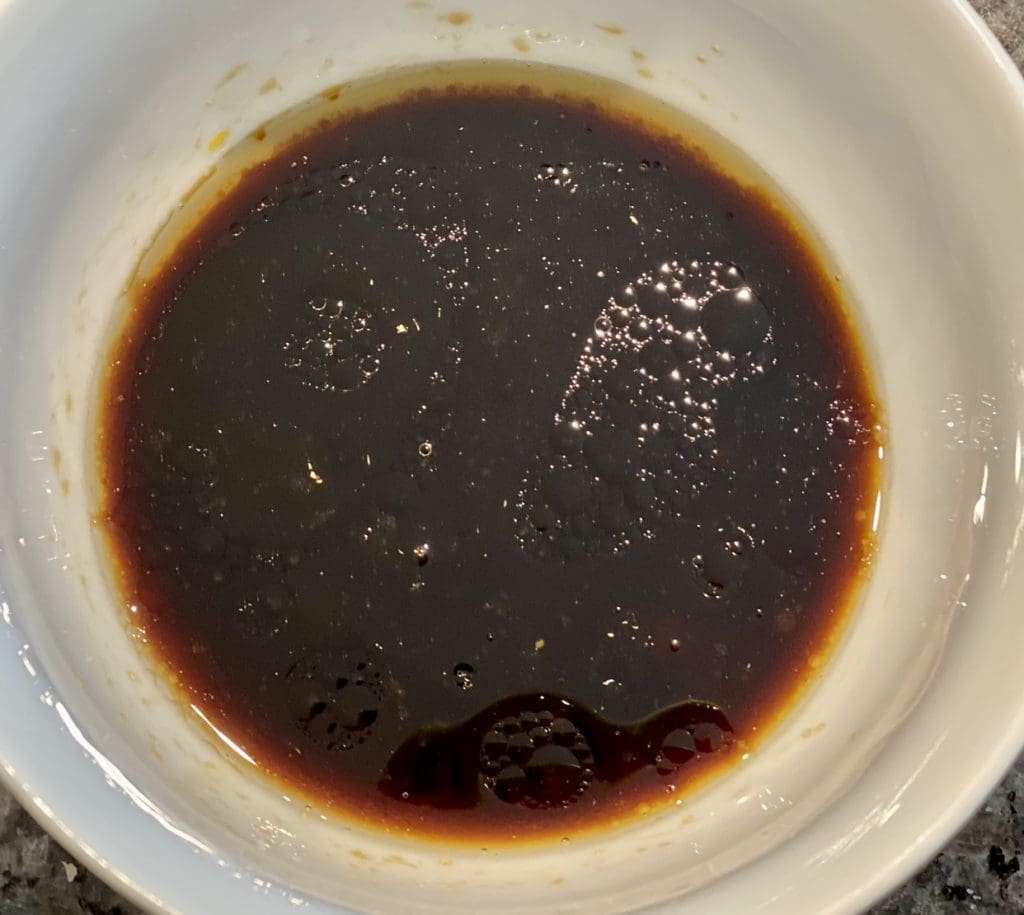
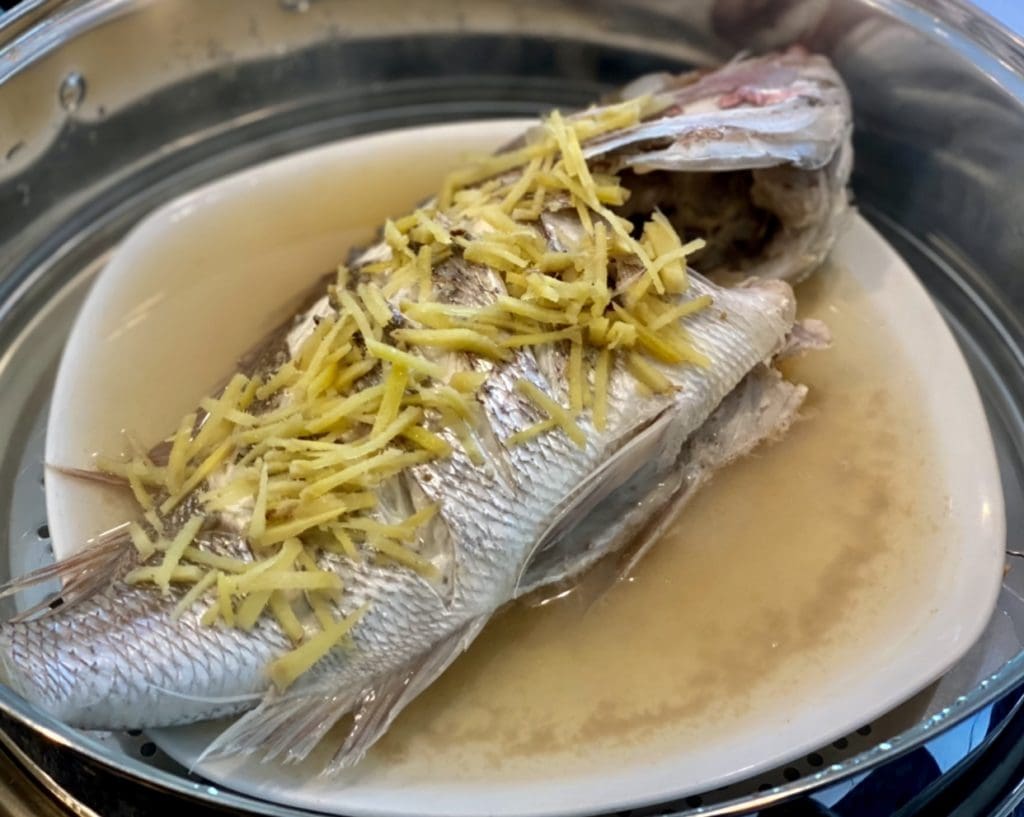
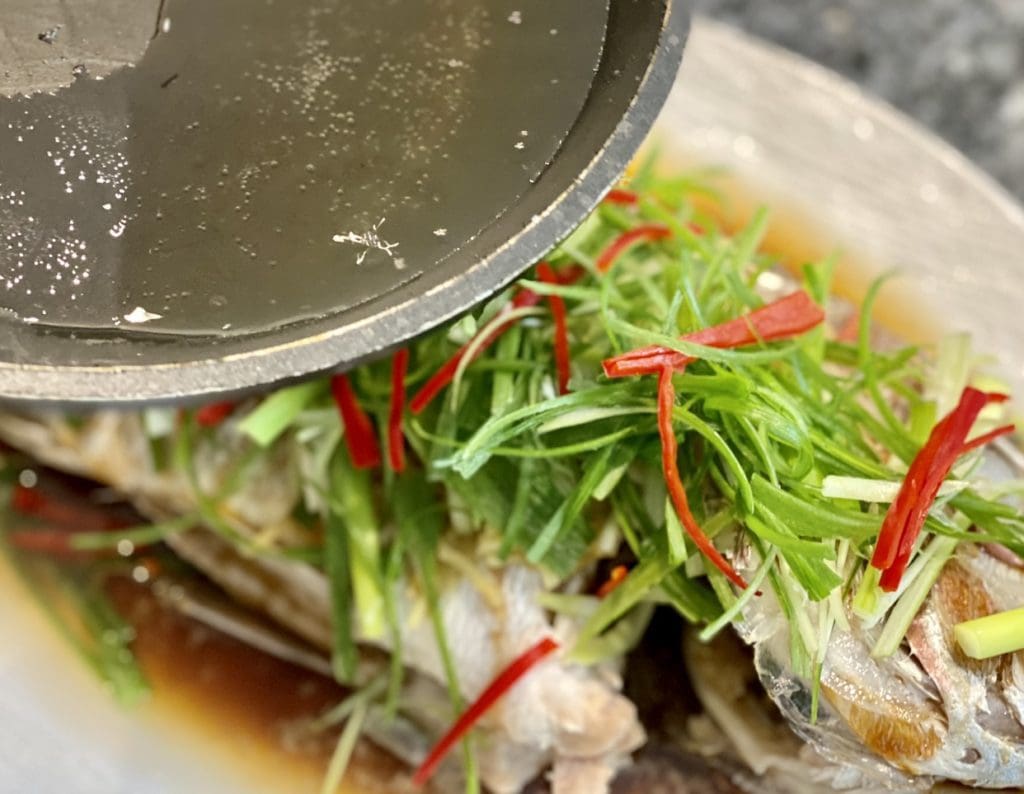
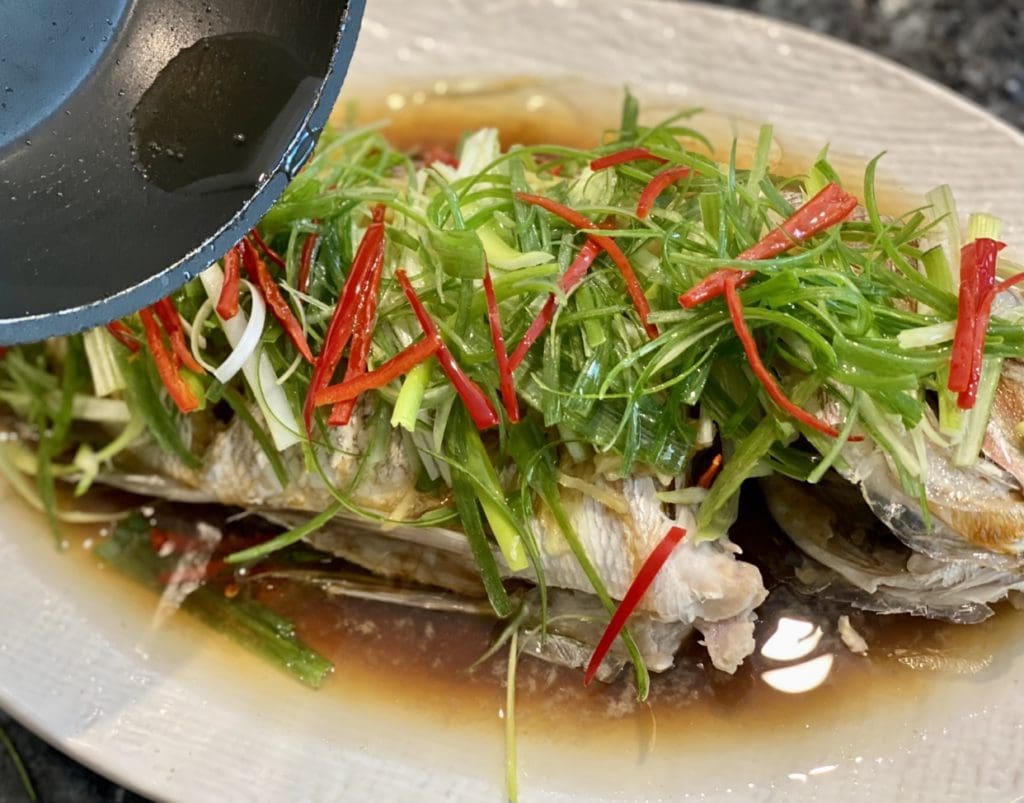
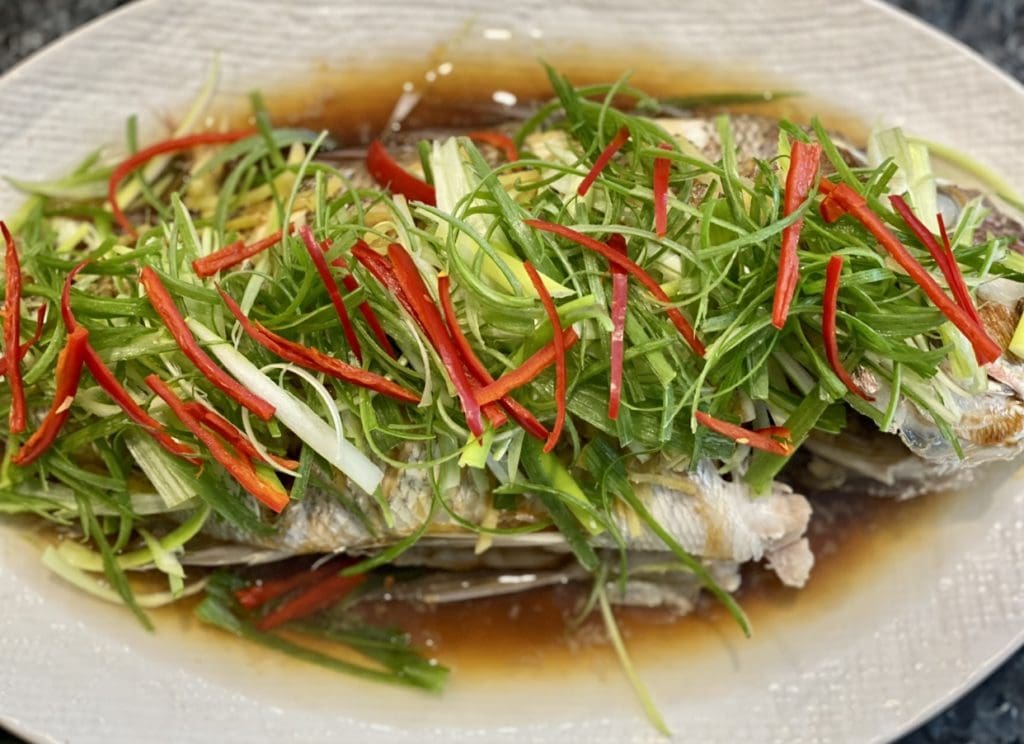
Whilst the fish is steaming, mix the sauce ingredients together in a small bowl until the sugar dissolves.
Remove the plate and fish from the steamer. Using a large flat spatula, lift the fish carefully onto a large serving plate. Spoon 2 or 3 tablespoons of the steamed wine and water mixture over the fish and pour the sauce on top. Then place the remaining ginger, spring onions and chilli over the fish.
Heat the oil over high heat in a small saucepan or frypan until very hot, then pour the oil on top of the fish. Serve immediately with steamed veggies and rice.
I’ve used a third-party application to calculate the calories and nutritional information, so please use this as an approximate guide only.
Cooking measurements are in Australian standard spoon and cup measurements. For specific details and conversions, visit our Australian Cooking Measurements page.
I would love your feedback and support if you made this recipe. To do this, please rate this recipe and provide a comment by scrolling down this page or by clicking that green circle on the bottom left. An email address is required (for spam), but it won’t be published. I would also love to see your dish, so don’t forget to tag me on my Instagram account ‘3catsfoodie’
Cheers – Cat T
Watch my Chinese Salt and Pepper Fish video
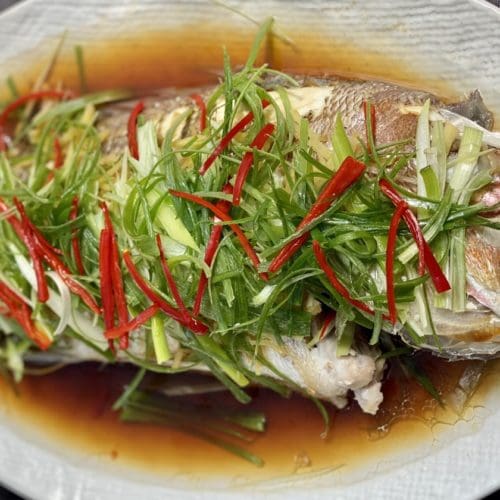
Chinese steamed fish
Ingredients
For steaming
- 1 kg whole snapper (or 2 x 500gm – 2 x 1.1lb) (NOTE 1)
- salt for seasoning
- ¼ cup water
- 4 tbsp Shaoxing cooking wine (NOTE 2)
- ⅓ cup thinly sliced ginger (or 40gm-1.4oz, peeled)
For the sauce
- 4 tbsp light soy sauce (NOTE 3)
- 2 tsp sesame oil (NOTE 4)
- 1 tsp sugar
For the topping
- 1 cup thinly sliced spring onions (green onions, scallions)
- 1 large red chilli (sliced thinly)
- ⅓ cup peanut oil (or vegetable oil)
Instructions
- Pat the fish dry with paper towels. Use a sharp knife and slash the fish to the bone diagonally 3 to 4 times on both sides of the fish. Lightly sprinkle salt all over the fish.
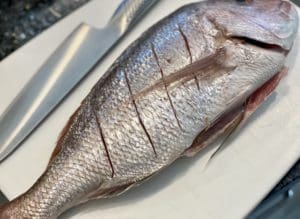
- Fill in a large saucepan or wok (with a steamer attachment) with water approximately 1/3 full. Place the saucepan (without the steamer attachment) over high heat and bring the water to a rapid boil.
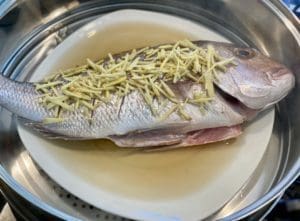
- Place the fish on a plate large enough to hold the fish, but make sure that it will fit into your steamer. Transfer the plate and fish onto the steamer attachment and pour water and wine over the fish, then place half of the ginger on top. Attach the steamer onto the saucepan and cover. Steam for 8 to 10 minutes or until the flesh of the fish is white.
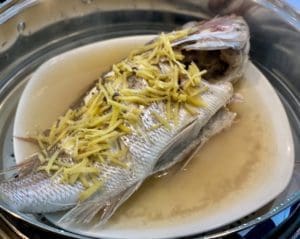
- Whilst the fish is steaming, mix the sauce ingredients together in a small bowl until the sugar dissolves.
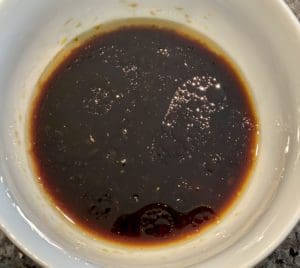
- Remove the plate and fish from the steamer. Using a large flat spatula, lift the fish carefully onto a large serving plate. Spoon 2 or 3 tablespoons of the steamed wine and water mixture over the fish and pour the sauce on top. Then place the remaining ginger, spring onions and chilli over the fish.
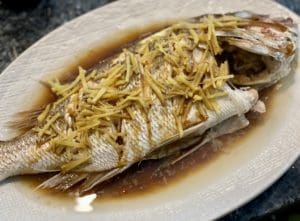
- Heat the oil over high heat in a small saucepan or frypan until very hot, then pour the oil on top of the fish. Serve immediately with steamed veggies and rice.
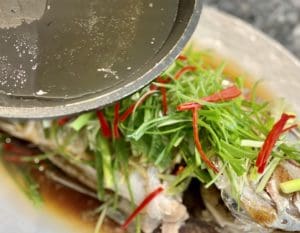



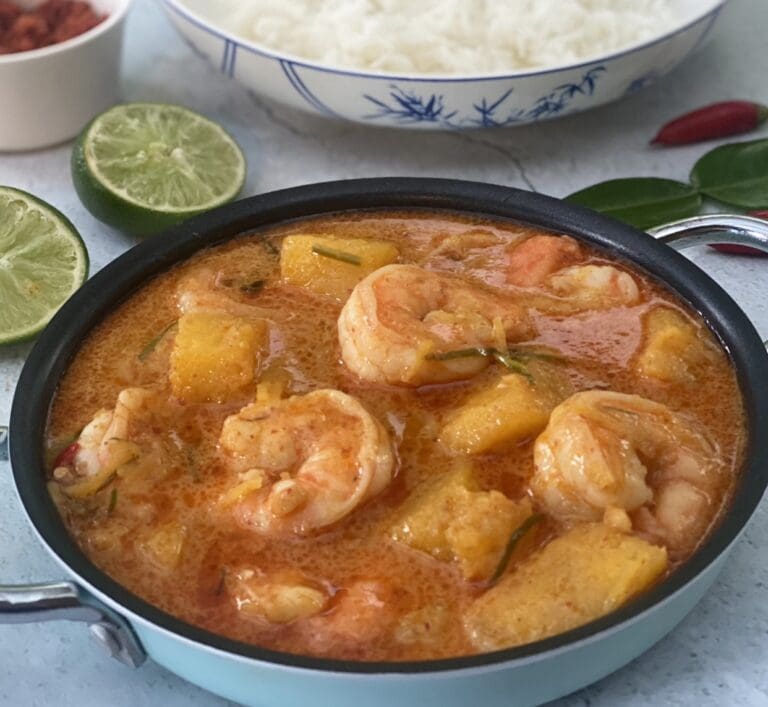
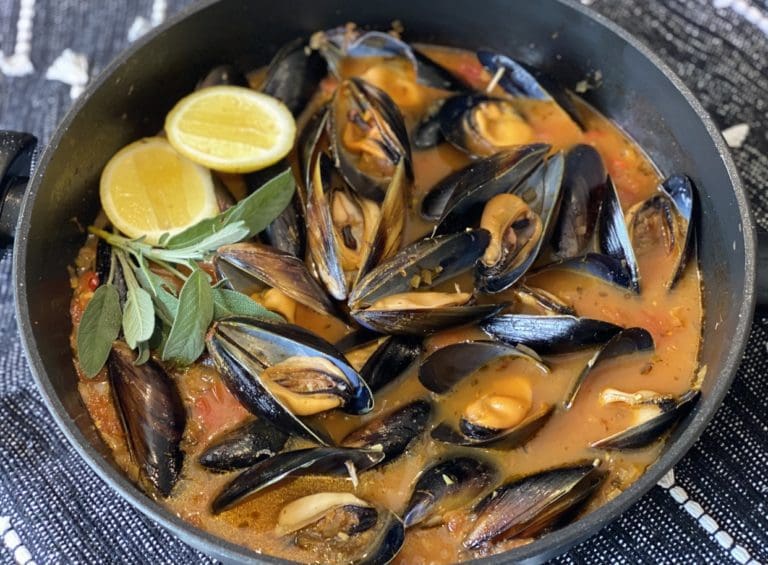
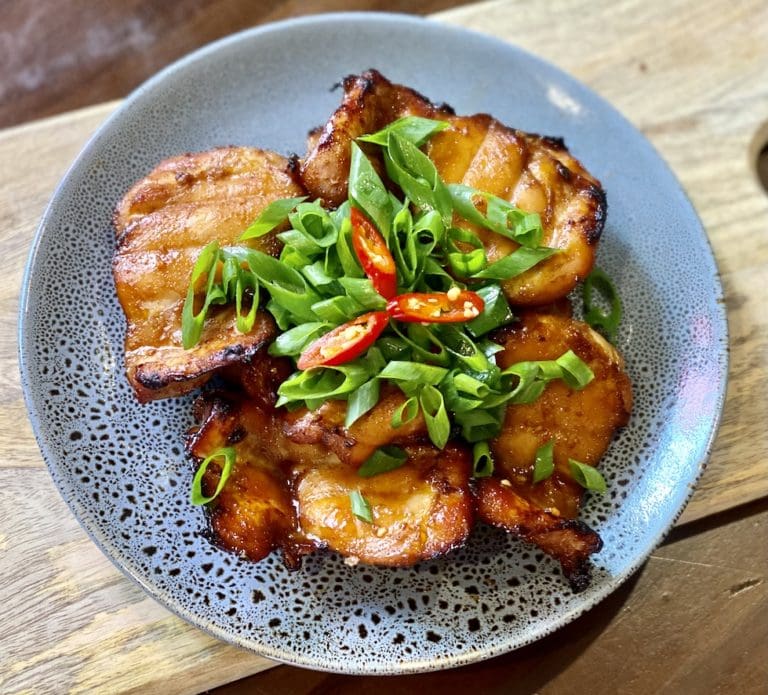
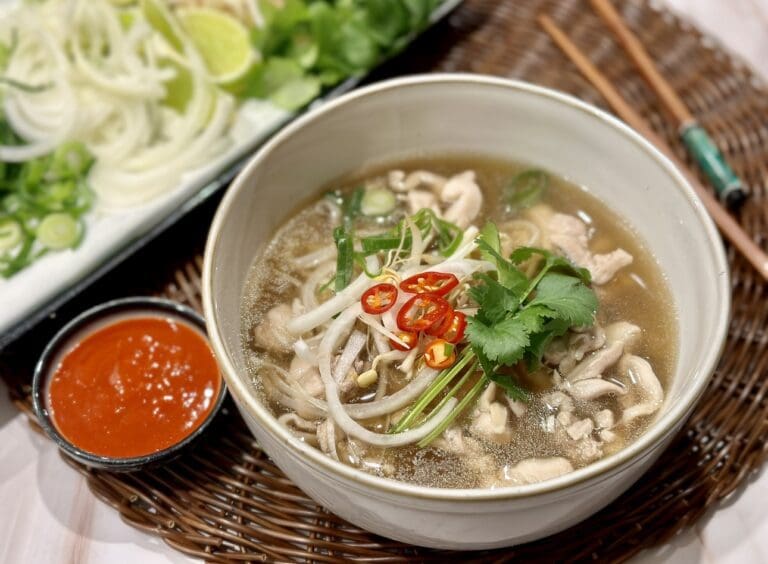
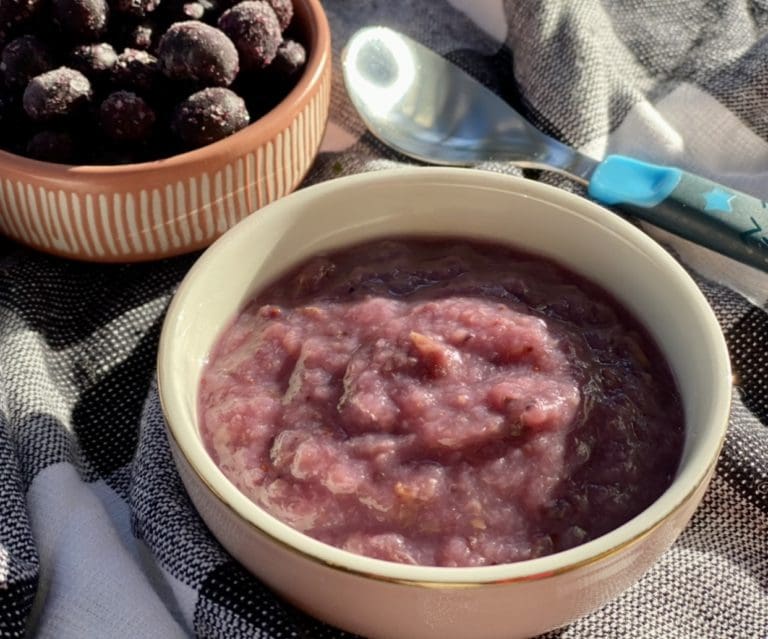
I am so glad to have found this recipe! It turned out so well, just like the one I used to have at my fav restaurant! Amazingly simple yet sooo tasty, so I’ve made this several times since!
Hi Lius,
Thanks so much for taking the time to write this lovely review. I’m very pleased you found this recipe easy to prepare, and I really love how it reminds you of the dish you had at your favourite restaurant! I’ve made this steamed fish many times too because it’s so healthy and delicious ?
I made this recipe and the baked salmon II recipe at the same time. the baked salmon was great, full of flavor throughout the salmon. this one was great also but not as full of flavor. a little more bland but still was tasty. you really taste the good flavor of the salmon but with a nice taste on top. the other recipe was more infused in the whole flavor. probably cause the oil it calls for. this is lighter and i will probably make it again. thanx.
Hi IKali,
Thank you so much for taking the time to provide your feedback. I’m thrilled you’ve tried both recipes! Sorry to hear that you felt this dish lacked flavour. It is a simple dish with few ingredients, but we honestly thought it was delicious and well-balanced. Perhaps, as you mentioned, lower the amount of oil next time because adding more sauce may make the dish too salty, or mix a lesser amount of wine and water into the sauce. Hope this helps! Let me know how you go next time. The Salmon with Salsa Verde is a gorgeous and special dish. I’m so happy you enjoyed it!